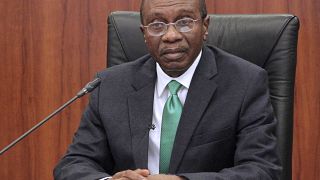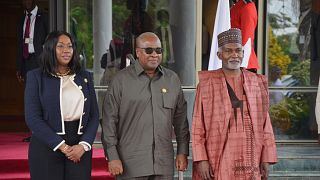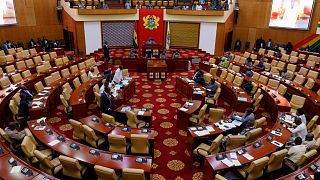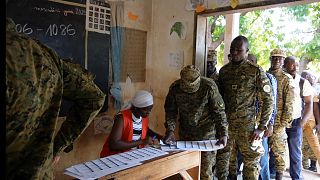Ghana
Ghana's central bank on Monday raised its benchmark lending rate by another 50 basis points to 30%. The move to raise the cost of borrowing took financial markets by surprise.
Accra is working to to stop its worst economic crisis in years, characterised by double-digit inflation, a weak Cedi and growing public debt. Annual inflation accelerated to 42.5% in May and June after slowing from 54% last December.
The central bank has been raising rates since late 2021, with only a few pauses inbetween the hiking cycle.
Ghana defaulted on most of its debt repayments last year and sought relief from its lenders. In May this year, the cocoa and oil producer sealed a $3 billion bailout loan from the International Monetary Fund.
Under the IMF deal, the country must implement strict spending cuts, end subisidies and increase tax collection.
The raising of the key interest rate is likely to add further strain to households and businesses grappling with the high cost of living and weigh on economic growth.











01:32
BRICS call for IMF reform, fairer AI governance
01:03
Ethiopia to post faster growth despite debt, inflation
02:09
In a bid to aid its economy, Lebanon hopes to return to golden age of tourism
01:09
Egypt: Inflation forecast to have climbed further in May
01:08
OECD revises forecast, projects slowdown in global economic growth
02:10
Accra city authorities renew battle against roadside trading